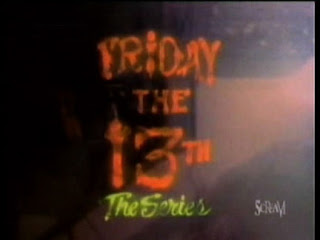Kubrick Reflection Notes: The Shining
“The Shining” is a movie that I have watched a few times previously. I have also seen the mini series that was approved by King. I remember reading that King did not like Kubrick’s version of the story as he put too much into the characters and not enough into the house. King has always had a thing for classic “Old Dark House” stories. One of my favorite movies is a silent film entitled “The Cat and the Canary” from 1927. It is considered the first of the “Old Dark House” stories. King wrote several, all of them heavily influenced by Shirley Jackson’s “The Haunting of Hill House”. My concern with Kubrick’s version of “The Shining” was predominantly in the casting. I won’t lie, I love Baz Luhrmann and often I feel that way about his casting, too. With “The Shining”, Jack’s version of Jack seemed a little over the top for the house being the evil. At least as far as my humble opinion goes.
In the reading I was particularly fascinated with Webster’s discussion on Kubrick taking various genres and changing them—going different than the standard—and in this sense, then, the fact that “The Shining” was changed from the focus predominantly on the house to being on the players made sense. We have the house and the supernatural within, but is it really the supernatural that is evil? The Shining that is evil? Or is it what we do with it? Power is just power—it is what we do with that power that makes it good or bad. We see how The Shining effects people like Halloran and Danny versus how it effects people like Jack, or Grady. Have they “always been there” because there are always people like them? In Kubrick’s way of bringing it full circle, we see Jack in the photograph—is it really Jack? Has it become Jack? All we know is that everything just circles around. We wind up back at the beginning because nothing really changes.
This plays in perfectly with a quote that Webster brough up from Geoffrey Cocks’ critique: “what haunts us is not the supernatural. What haunts us is history.” We see our past—what we have been, what we have done. Can we rise above it? Can we move past it? Will we continue to make the same mistakes we made in the past? If people haven’t fundamentally changed, how can we hope for anything better than our accomplishments of the past? And if that is so, there are the ghosts we live with. We cannot bury our history—it walks around with us.
Another thing I think we see in the film is the danger of isolationism. We seclude ourselves for whatever reason, and then wonder why we cannot learn or move beyond ourselves. When we close ourselves off, we learn nothing as we have no new input with which to work. We see that Danny, who has been secluded by his parents—being taken out of school because his father hurt his arm, then being brought away again for his father’s job. Danny, however, understands the trouble with isolationism, even creating a “shining” friend that acts as another voice to what is going on.
I did want to note my intrigue with the cinematography there were juxtapositions of opposites that I found very intriguing. One particular scene when Wendy was going up the stairs swinging the bat against Jack he is still the one in control. She has the higher ground and she has the weapon, but we feel her fear. In this we see that sometimes the appearance of an advantage is an illusion. She was not the one in power, even though she was in a position of power. Another thing I noticed was that generally seasonal affect disorders, being stuck inside, all bring in feelings of claustrophobia. In this film, Kubrick’s cinematography shows us just how open everything is. We see the huge landscape in the beginning, there are several huge windows showing the great outdoors, the lobby and the room Jack is working in are huge. Even with all this space, the building is oppressive. There isn’t enough space, there aren’t enough ways to get away. When Danny wants to get a fire truck, he still has to go into their little lodging area and potentially enrage his father to get his toy. With an entire hotel at their disposal, Wendy and Danny lock themselves into the bathroom of their little area to hide from Jack. Even Danny’s “friend” Tony serves as juxtaposition. We are worried about people with imaginary friends and the possible psychoses associated with such an act, but Tony actually saves Danny—physically and mentally.

Comments
Post a Comment